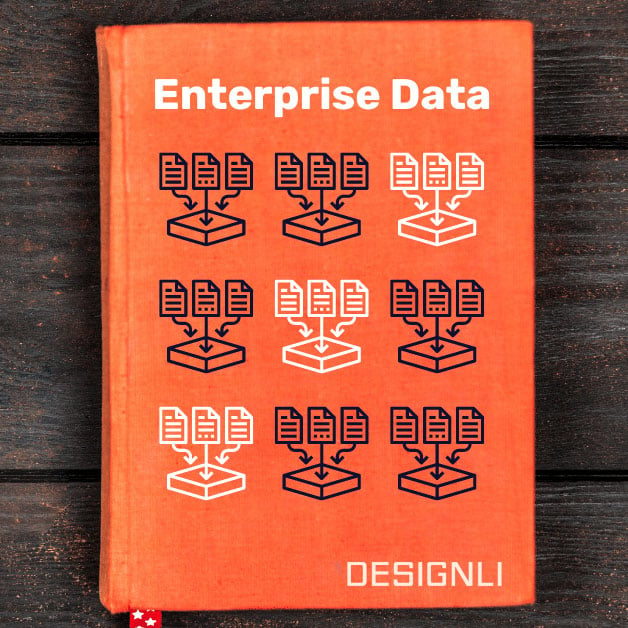How to Build an E-Learning Platform
Struggling to manage a growing number of online courses? Feeling limited by generic e-learning platforms that don't truly reflect your brand or meet...
7 min read
Written by Dan Gower, Sep 12, 2023

Imagine driving at night with no headlights. That’s a bit what making business decisions would feel like with no data. Assumptions make a poor guide. With the right tools though, companies can look to real trends and statistics for direction instead.
But before you have actionable insights, you must start by collecting data. Whether you’re looking to gather customer feedback or multimedia content, you’ll need a place to store it. That’s where data collection apps come in.
In this guide, we’ll look closer at the different types of data collection apps, what they’re used for, and where to find the right tool for your business.
What is a Data Collection App?
Data collection apps are tools that collect, store, organize, and distribute data on a digital platform. Data can be quantitative or qualitative. Typically, these apps support research, marketing, or other goals that rely on insights.
Depending on the business goal, data collection software comes in various forms. Apps can include surveys, analytics, reporting, location tracking, and much more.
Data collection apps span many different industries. Before you decide which applications will best help your organization, you’ll need to define your goals. Are you looking to boost add-on purchases or to analyze your marketing campaign metrics? There are a plethora of options when it comes to data collection software. Narrowing down your focus is essential to finding the right fit for your business.
Below are a few of the broad categories of data collection apps.
Other data collection apps allow users to create forms or surveys tailored to their data requirements. These tend to include various question types such as multiple-choice, open-ended, rating scales, and more. Many apps in this category provide a user-friendly interface to design and change these forms as needed.
This is both a category and a feature, as several data collection apps have offline capability. Software with this quality allows users to gather data wherever they are, even with poor or no internet connection. Similarly, other apps are designed solely to store data offline. In that case, the information stays on a device. Once an internet connection is available, it can synchronize with a server or database.
Many apps have features to check the quality of the data they collect. These features can include rules for data validation or real-time error checks. Skip logic can also be handy. Software with this feature guides users through the right questions based on their previous responses.
Certain apps allow users to include photos, videos, or audio recordings in their collected data. This capability is useful for analyzing visual or multimedia content.
Other apps use GPS to gather and link location information to the collected data. This feature is helpful for projects that need to track the movement of certain items, such as targeted ads or smart home devices.
Many data collection apps focus on the security and privacy of collected data. Using encryption and user authentication, they comply with regulations to protect sensitive information.
To maximize usability, data collection apps may offer integration with other platforms. This feature enables seamless transfer to databases, analytics tools, or cloud storage. Apps may also provide export options in various formats, .csv or .xls, for further analysis.
Some data collection apps provide built-in analytics and reporting features. This lets users generate visualizations, summaries, or statistical insights from the collected data. These tools empower users to analyze and interpret the data without additional software.
Data collection apps simplify and streamline gathering, managing, and analyzing data. Traditional, paper-based methods or manual data entry are no longer needed. With data collection apps, users can manage data with efficiency, accuracy, and scalability. Software like this is a valuable tool for research, marketing campaigns, and more.
Before you select a data collection app, you’ll want to understand how it will benefit your business. Clarity on the advantages will aid your software discovery and selection process.
Some of the most significant benefits of utilizing a data collection app are listed below.
Data collection apps streamline the data collection process. By using digital forms, these apps are both user-friendly and easy to locate. This helps to save time and effort. Many other programs are disjointed or don’t integrate with ERPs. In contrast, data collection apps are straightforward. They also let businesses collect data from many sources, locations, or respondents at once.
Learn more: What is an ERP Integration?
Data collection apps are typically loaded with tools to ensure the data is accurate and complete. This helps avoid mistakes and makes the data more reliable. Ultimately, all this improves the decision-making process.
Real-time data collection enables businesses to gain insights. This, in turn, allows them to make more informed decisions faster. Real-time data collection matters in scenarios that need immediate feedback or rapid response. Customer feedback surveys or event evaluations are one such example.
Data collected through apps is stored, organized, and accessed in a centralized manner. This facilitates data management, analysis, and reporting. As a result, business stakeholders can retrieve the data whenever needed. Data collection apps end the hassle of searching through physical records or scattered digital files.
Data collection apps often offer integration capabilities. With integration, users can transfer collected data to other software or platforms without a hitch. Integrated data empowers businesses to uncover patterns, trends, or correlations more quickly. At the end of the day, that means better decision-making and more strategic planning.
Automated data entry dramatically reduces the need for manual labor. Data collection apps can free up human resources. Instead, staff can focus on other, more critical tasks.
Data collection apps offer flexibility. Users can customize forms, surveys, or questionnaires to match specific business requirements. These apps scale well for large projects and accommodate growth. For small or large amounts of data, the collection process is more efficient.
Data collection apps prioritize privacy and security. Encryption, authentication, and compliance features keep data safe. This helps businesses maintain trust with customers and partners.
These apps help businesses improve their data collection processes and gain accurate insights. Plus, the improvements help leaders make informed decisions. Data collection apps also enhance operational efficiency and knowledge of customers. That, in turn, contributes to the success of the organization.
When adopting a data collection app, consider a few key features. Price point, user-friendliness, and integration options should be top considerations. Overall design and performance features can also impact the decision. Some of the biggest standouts in the data collection space now include:
One of the oldest and best-known online form builders, Jotform creates a hub for survey information. It allows users to create, access, customize, share, and organize forms all in a singular place. With Jotform, users can scan QR codes, provide their location information, add electronic signatures, and more.
Jotform offers other features beyond simple forms. For example, it also has a special kiosk mode that turns a device into a digital kiosk. Ideal for events and conventions, kiosk mode lets users fill out surveys or feedback in real time. With endless customization and feature options, Jotform is one of the most versatile form-building apps.
Designed for use in industries like oil, gas, and utilities, the Fulcrum app collects real-time geospatial and safety data. The app’s automatic geo-tagging feature for photos and videos enables offline data cataloging.
Fulcrum also allows users to build their own forms or use templates to collect various types of data. Audio clips, videos, signatures, and scanned barcodes are all acceptable. The app can also export data in a variety of formats.
Most Fortune 100 companies use Smartsheet, a collaborative work management platform. It is truly the bedrock of data collection apps. With it, users can create custom forms with options for scanning barcodes and sharing location information. Smartsheet also offers various question types and data validation rules to ensure accuracy. With workflow automation, real-time collaboration, and integration capabilities, the tool streamlines data collection. Teams can also automate notifications.
Smartsheet’s data analysis and reporting features allow for insights and informed decision-making. At the same time, its security measures and access permissions protect sensitive data. Smartsheet provides a versatile, collaborative tool for data collection and management.
If you need to create survey forms with question branching or complex order processes, Question Pro is ideal for you. It can even prevent bias by randomizing questions out of order.
Furthermore, Question Pro allows more advanced users to code their own custom forms. The platform also offers various question types, such as card sorting and stopwatch options. Plus, it can integrate with most software programs.
Sometimes easier is better, especially when it comes to email feedback surveys. YesInsights reduces the clutter of unnecessary features by generating one-question user surveys. These forms need only one simple click. With YesInsights, it’s easier and more accessible than ever for customers to answer feedback questions. The software can help drive your business forward.
Setup is quick and easy, with options to enable a post-response landing page. Plus, users can customize the survey widget’s appearance and thank you message. The survey tool can also be embedded in a website. What’s more, YesInsights survey results can power activities in other apps. Adding respondents to an email list or spreadsheet is a breeze.
You might like: 18 Great Examples of Enterprise App
Off-the-shelf business apps offer cost-effective and quick solutions for everyday business needs. They come with established functionalities, ongoing support, and regular updates. For many apps, integration options allow compatibility with other tools. This functionality, however, may limit customization choices, hindering scalability. Similarly, data security and dependency on the provider are also factors to consider.
Regardless, off-the-shelf apps provide a practical starting point for businesses seeking immediate solutions. Established features and support are a plus. But, the more specific your business’s needs, the more likely a custom-built solution is right for you.
Learn more: Is Custom Software Development Right for Your Business?
In today’s world, data collection apps play a crucial role in gathering and organizing business information. They streamline the automation, accuracy, and efficiency of data collection. Plus, they provide real-time insights and offer full-scale integration capabilities.
While off-the-shelf apps offer convenience and features, they may have customization and scalability limitations. That’s why a custom-built app solution is often the best choice for businesses with specific requirements.
If you’re seeking a tailored data collection app to meet your business needs, schedule a free consultation with Designli. Our team of experts specializes in developing custom-built apps that align with your goals and enhance your processes.
Contact us today to explore how Designli can empower your business. We’d be happy to tell you how a personalized software solution can optimize your data collection and unlock valuable insights. Schedule your free consultation now and take the first step toward data-driven success!
You might also like:
Subscribe to our newsletter.

Struggling to manage a growing number of online courses? Feeling limited by generic e-learning platforms that don't truly reflect your brand or meet...

Custom software development is analogous to choosing your wedding outfit. You can buy it off the rack and wear it as it or choose to take the extra...

When it comes to enterprise technology, a set-it-and-forget-it approach won’t cut it. Staying current in the digital age requires action. You can’t...